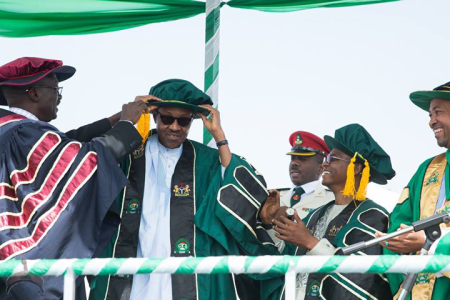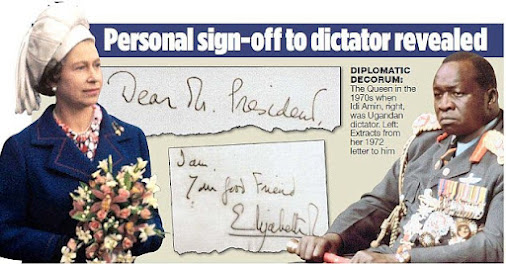By Andrew A. Erakhrumen
Interestingly but regretfully, the current Federal Government of Nigeria (FGN) – that is very good at disobeying court orders/judgements, just like, or even more than, its predecessors – has referred the trade dispute, (with negotiations ongoing), through its Ministry of Education with Academic Staff Union of Universities (ASUU) to the National Industrial Court of Nigeria (NICN), Abuja Judicial Division.
*Buhari receiving a honorary degree
At NICN, on the 21st of September, 2022, FGN’s request for an interlocutory injunction restraining ASUU from continuing with its strike was granted by a Vacation Judge. Not unexpectedly, ASUU filed an appeal and a stay of execution of the restraining order on the 23rd of September, 2022. Our interest in these events stems from the belief in an African adage, loosely translated as: if a wicked person states his/her case, another wicked person should not be allowed to be an arbiter in such a dispute!




















